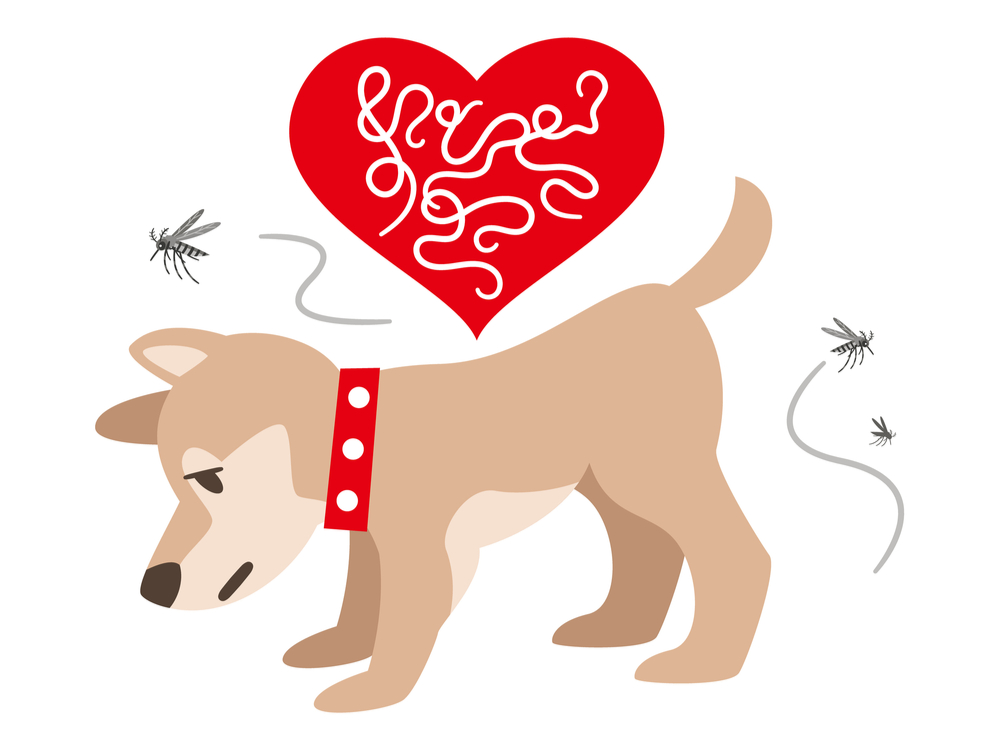When Your Dog Has Heartworm Disease

When a dog has heartworm disease, it can damage their heart or be life threatening. Heartworm disease is costly to treat, and the treatment itself is very uncomfortable for a pet. The more advanced the disease, the more challenging the case. This is why prevention is crucial. It is less expensive and less harmful to your pet than treating heartworms.
Heartworm disease is on the rise, with more than 250,000 pets diagnosed each year. The good news is that there is treatment. If your dog has heartworms, here are some of the important steps in diagnosing and treating the disease to have fewer side effects and greater success.
Diagnosing Heartworm Disease
When your dog’s heartworm blood test comes back positive, your veterinarian will run a few other tests. These tests will determine the stage and severity of your pet’s illness in order to come up with the correct treatment plan. Some of these important tests include:
- Urinalysis
- Antigen test to check for the presence of adult female heartworms
- Test to determine the presence of microfilariae (heartworm offspring) in the bloodstream
- Diagnostics to look for any signs of damage to the heart, lungs, and other organs
There are four stages to heartworm disease.
- Stage 1 — This is when a dog is infected but doesn’t yet show symptoms.The heartworms are present in the heart even if there are no detectable antigens.
- Stage 2 — In stage 2, a dog will start to have less exercise tolerance and be more lethargic. A dog may also develop a dry cough. Heartworms are usually producing microfilariae to create more heartworms.
- Stage 3 — In this stage, you can detect definite signs of adult heartworms in the heart and vessels. They are like long strands of spaghetti growing in the heart. A dog will become increasingly lethargic and start coughing more with the possibility of coughing up blood.
- Stage 4 — In the most advanced stage, the heart and lungs will show significant damage. The liver will also be enlarged. Dogs at this stage are very ill and are at risk of death.
What to Expect When Your Dog Has Heartworm Disease
A heartworm diagnosis may be frightening for a pet owner, but there are some excellent options in treating this serious disease. Once the diagnosis is confirmed and the stage of the disease is determined, there are specific ways we can help your dog.
First, you must restrict exercise. This is because exercise increases the damage that can be done to the heart and lungs. In stage one and two, your dog may be allowed to go on a slow, short walk, but more severe cases of heartworm call for restricting activity.
Your veterinarian will focus on stabilizing the disease by addressing, treating, and monitoring any secondary conditions that are impacted by heartworms.
Once stabilized, your pet will receive the right treatment protocol for their level of heartworm disease. Your dog must be on heartworm preventative for a set amount of time before we can administer medications and antibiotics to kill the adult heartworms. In more advanced cases, we would need to perform surgery to remove the adult heartworms.
In Summary
Treating heartworm disease is a complex and lengthy process, but complete treatment can be successful. If your dog has heartworm disease, there is hope for a cure and for continuing good health and well-being for them. Of course, the best way to ensure that your pet never has to contend with heartworm is to keep them on a heartworm preventative.
If your pet has been diagnosed with heartworm disease, please do not hesitate to begin a treatment plan right away. If needed, you can call the Oakland Veterinary Referral Services team.


